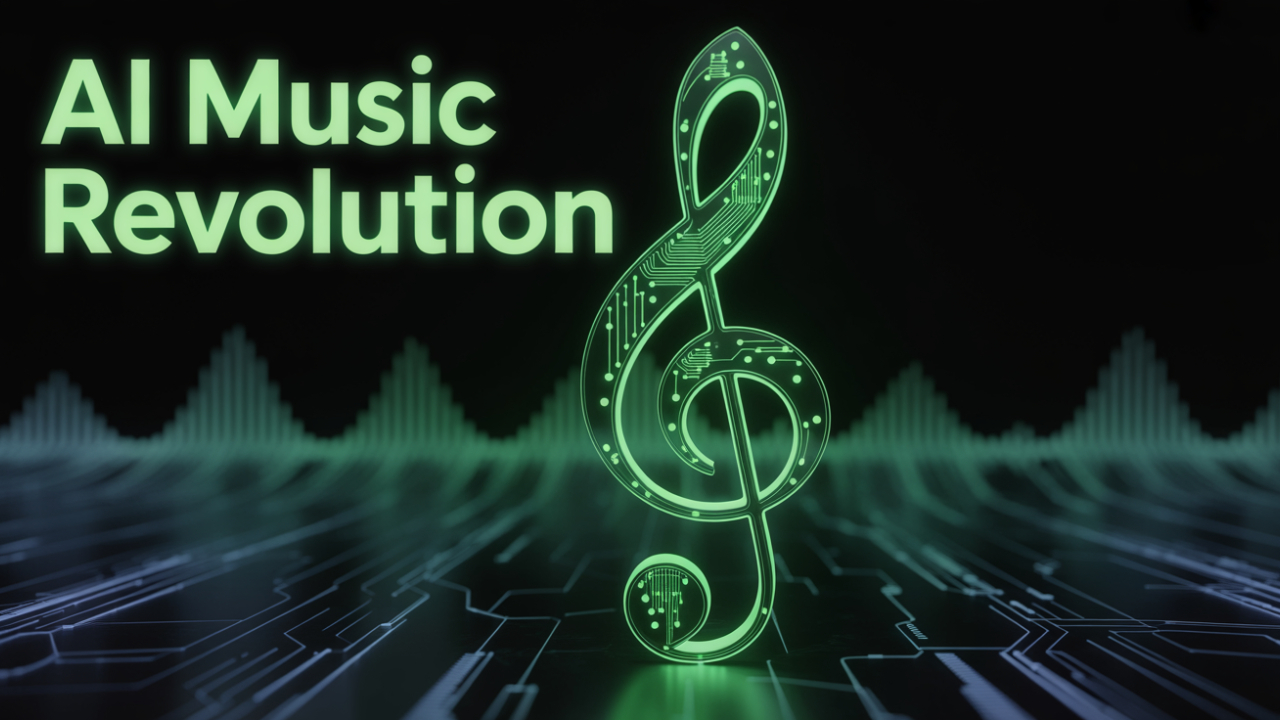Best LLM Integration Services 2026: Enterprise & Open Source
Scale with 2026’s top LLM integration services. Reviewing Composio, LangGraph, and enterprise MVP partners for high-accuracy AI orchestration.

The music industry has experienced unprecedented transformation since the emergence of generative AI music tools. Today, AI music composition platforms are powering real-world solutions in music production, voice synthesis, and automated mastering across major record labels and independent artists.
"The future of music creation lies in the seamless integration of human creativity and AI capabilities, not in replacing artists but in amplifying their potential."
AI-powered melody generation and arrangement tools
Advanced AI voice cloning and vocal production
Intelligent mixing and automated mastering
AI-powered content optimization and discovery
Taryn Southern's "I AM AI" became the first album composed entirely using AI, marking the beginning of mainstream AI music acceptance.
ElevenLabs and similar platforms achieved human-level voice synthesis quality, enabling realistic AI vocal performances.
Suno AI and Udio launched, enabling complete song generation from simple text prompts, democratizing music creation.
The 2023 release of advanced AI music models marked a pivotal moment in music technology history. Platforms like Suno AI and Udio demonstrated the ability to generate complete songs from text prompts, while ElevenLabs revolutionized voice synthesis.
AI music generation algorithms can analyze vast databases of musical patterns, enabling precise prediction of chord progressions, melodic contours, and rhythmic structures that complement human creativity.
A 2024 study demonstrated that artists using AI composition assistance completed songs 40% faster while maintaining comparable quality ratings from professional music critics. This generative music breakthrough enables enhanced creative exploration and reduced production timelines.
Major record labels and music technology companies are investing heavily in AI music partnerships. Sony Music and Universal Music Group are transitioning from experimental projects to production deployment, integrating AI-powered composition assistants directly into digital audio workstations.
AI voice synthesis is delivering measurable improvements, including a 90% reduction in studio time for vocal recording. High-fidelity voice cloning enables narration, dubbing, and character performance that maintain consistent quality across projects.
Warner Music Group has implemented AI voice synthesis for artist collaboration, achieving significant improvements in production efficiency. This AI-enhanced approach enables cross-continental collaborations in real-time, bypassing traditional scheduling hurdles.
Ethical considerations surrounding AI voice synthesis are becoming paramount. Industry organizations are developing frameworks for explicit consent, transparent attribution, and fair compensation for voice model training data.
While AI tools enable breakthrough creative possibilities, they also raise complex questions about intellectual property. Labels and artists must balance efficiency gains with maintaining the unique value proposition of human-created music.
The global AI music market is projected to reach $2.6 billion by 2030, with a compound annual growth rate of 28%. Early adopters in music technology will capture disproportionate market share in this evolving landscape.
Organizations must prioritize AI music education and workforce development to remain competitive. The window for early adoption is closing rapidly as AI transitions from experimental tools to production environments.
The generative AI music revolution has transitioned to practical implementation across the industry. Evidence shows that AI is delivering real value in composition, voice synthesis, and production today.
Subscribe to DecodesFuture for comprehensive insights on AI music applications and industry breakthroughs.
Continue exploring the future of GenAI
Scale with 2026’s top LLM integration services. Reviewing Composio, LangGraph, and enterprise MVP partners for high-accuracy AI orchestration.
Stop wasting VRAM. Learn to use real-time AI inference analytics to cut costs by 40% and monitor model health using Arize, Levo, and LangSmith.
Stop manual reporting. Discover the top AI-powered engineering analytics tools for 2026: Waydev, LinearB, Jellyfish, and more for predictive ROI.
Loading comments...